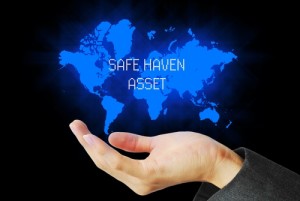Financial emergencies are all too common in the United States. Almost half of Americans couldn’t handle a $400 change to their budget, and many in this situation are working members of the middle class. Whether you’re facing an unexpected medical procedure, need to repair your car as soon as possible or just can’t cover rent this month, you’re not alone in your struggles to pay the bills. You have options for handling these sudden expenses; here are a few ideas for getting money right away.
Sell Some Stuff
It’s not ideal, but you can raise cash quickly by selling off some of your possessions. You won’t get top dollar for your goods, but you can get money in your pocket to take care of your emergency right away. You have multiple options for finding a quick buyer:
- Post an ad on Craigslist for big-ticket items like televisions, appliances and expensive apparel.
- Visit a pawn shop or flea market stall to unload your lower-value items.
- Host a yard sale this weekend. Even better, find a local rummage sale you can join for increased foot traffic and better odds of getting the money you need.
- If you have children’s items like clothing, toys or books, look for a Facebook group for parents in your area. You might be able to sell unused goods in a single lot to a sympathetic family looking to fill up their nursery.
Donate Plasma
Don’t be fooled by the euphemism of “donate” plasma. That language exists to circumvent the federal government’s rules on selling blood and blood components, so you’ll technically be paid for your time, not your plasma. Either way, the end result is cash in your pocket. Plasma centers offer big bonuses to entice first-time donors, so you could score up to $100 with your first two visits. You won’t be alone; many others use plasma to stay afloat financially. Donating usually requires a physical exam to ensure you’re healthy and then 2 to 3 hours of time. You can donate up to twice a week.
Short-term Loans
Despite increasing regulation over the past few years, short-term loan options continue to be available in most states. If you own a car or home or receive a regular paycheck, these high-interest loans can help you deal with your financial emergency if you know how to manage debt wisely. Here are a few different options:
- Title loans. If you own your car, this type of emergency banking will let you use your vehicle as collateral for loans of several thousand dollars. However, if you fail to repay the company, they can charge you large fees or seize your vehicle.
- Borrowing from a friend or family member. Your social network probably won’t charge you interest for an emergency loan, but you might lose some goodwill by putting your friends in the awkward position of having to turn down your request. If you have a good plan for paying back the loan, you can make this method work with few downsides.
- Payday loans. These loans are controversial, with advocates saying they provide access to cash for unbanked consumers and critics claiming they unfairly harm low-income families. If you’re strapped for cash, they can be a convenient option for an emergency loan, but make sure you don’t get trapped in the cycle of borrowing money from them with every paycheck.
Short-term loans from title or payday lenders give you immediate access to the funds you need but charge exorbitant interest rates. Pay them back quickly or you’ll find yourself in an even bigger financial emergency next month.
Use a Credit Card
If you have a credit card available, use it to cover your emergency. Ideally you’d only use your card if you were able to pay off the entire balance with each statement, but financial emergencies are less-than-ideal times. You need to take care of yourself and your family; don’t feel guilty about using the tools you have available.
You’re not alone in your financial struggles, and your situation isn’t hopeless. Use these techniques to raise the money you need right now. Once you’re back on your feet, start thinking about long-term strategies for controlling your finances and building a savings fund so you can be ready for the next financial emergency.

 The world of forex is vast and full of potential. However, this can be a bit intimidating if you’re new to it. That’s why we’ve put together the three most-traded currencies on all of FX. Start learning about and trading these and, in no time, you’ll be able to spread your wings and experiment with other options.
The world of forex is vast and full of potential. However, this can be a bit intimidating if you’re new to it. That’s why we’ve put together the three most-traded currencies on all of FX. Start learning about and trading these and, in no time, you’ll be able to spread your wings and experiment with other options. Financial literacy is something we should all have but unfortunately not all of us do. Getting our heads round all the financial terms can often be a headache but it is important that we are all aware of our finances and any problems that should arise.
Financial literacy is something we should all have but unfortunately not all of us do. Getting our heads round all the financial terms can often be a headache but it is important that we are all aware of our finances and any problems that should arise.